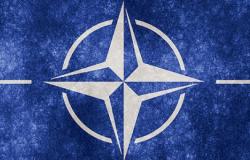Alliances Do (indeed) Not Last Forever

Tom Sauer argues for a world order based on collective security instead of collective defense organizations (or alliances).
The newly elected president in the US does not like alliances. He wonders why the US has to be the policeman of the world and finance expensive alliances that - in his eyes - are not cost-effective for the US. President Obama and his predecessors already criticized the allies for not spending more on defense. The Americans believe that the Europeans, the Japanese, the South Koreans and the Australians are free-riders, which is difficult to deny. Burden-sharing is a structural problem of alliances. Due to internal conflicts more than one alliance has already collapsed in the past.
Alliances, or collective defense organizations, are indeed a temporary phenomenon. They are established, and after a while they disappear. They are born because of an external threat. Once this threat disappears or is minimized to normal proportions, the alliance is disbanded. But for one reason or another that does not apply to the North Atlantic Treaty Organization (NATO). While NATO was established against the communist threat of the Soviet-Union that triggered the establishment of the Warsaw Pact in turn, the reason to exist disappeared after the Cold War. As one could have expected, the Warsaw Pact imploded in 1991. NATO, in contrast, remained into existence, and had to find another enemy.
This brings us to the most fundamental criticism on alliances: they apparently "need" external enemies. That is good for the member states when there is such an enemy, as an attack on one member states is regarded as an attack on all. This means that all members are supposed to help any member state when attacked by an outsider. For NATO, this corresponds to the famous article 5 of the Washington Treaty. That characteristic however is detrimental if there is no enemy, as alliances tend to "create" a new enemy. Otherwise, the raison d'etre of the organization is at stake. In other words, alliances - if mishandled - can create conflicts and wars.
That is exactly the story of NATO after the Cold War. In the 1990s, there was a "threat blank", and NATO went searching for and also found new enemies like "rogue states", failed states (like the former Yugoslavia), the threat of the proliferation of weapons of mass destruction (of which NATO ironically possesses a lot), and after 9/11, of course, terrorism. If one waits long enough, new dangers arise against which one can arm oneself and act, if needed.
NATO intervened with moderate success in the Balkans, expanded towards the East despite (oral) promises to Russia in February 1990 not to do so, failed miserably in Afghanistan, and made matters worse in Libya. As a student, NATO would get a 'fail', as a firm it would be bankrupt. But NATO survived. Worse, NATO succeeded to provoke its Russian "partner" (as it was called in the 1990s) by expanding the alliance to the East for a second time and announce a third extension round that would include Georgia and Ukraine, and by stationing missile shields "against Iran" near the borders of Russia. By doing so, NATO pushed Russia into a corner. Russia reacted by invading the Crimea. That is of course something to be denounced as it goes against the international rules of the game.
But can it be called a surprise taking into account what happened before ? Lastly, it should be reminded that NATO is the biggest break on the recent efforts to ban nuclear weapons worldwide. Overall, one could make the argument that the world of today would be much safer without NATO.
Many Europeans, Japanese, South Koreans, and Australians are worried. Will Trump do what he has promised to do and tear the existing alliances apart ? Advocates of a stronger European Union regard it as an opportunity to strengthen the Common Foreign and Security Policy of the EU. This may indeed be a good idea, at least if the following two conditions are fulfilled. One, European security should be handled in the first place by means of diplomacy, and only in second order by defense. Second, European defense should not replace NATO as a collective defense system, be it on a smaller scale.
What is needed is a fundamentally different world order based on collective security instead of collective defense organizations (or alliances). Collective security organizatons (like the United Nations) aim to provide security to its members by agreeing on rules and procedures without having the need to find a common enemy. If NATO is disbanded, a new European or Euro-Atlantic collective security organization could be established that ideally would include Russia. NATO may also transform itself into such a new organization. An alternative is a boosted version of the Organization for Security and Cooperation in Europe (OSCE). The problem of the Baltic States, that nowadays feel afraid despite their NATO membership, will be automatically resolved.
Of course, the odds are that all this remains wishful thinking. The US will probably not withdraw from NATO because it also yields many benefits: the presence of military bases abroad, and substantial military support in case of military interventions. But if Trump does what he has promised, the number of military interventions will further decline and the future of NATO and other alliances may indeed be in doubt. As stated above, that is a less worrisome prospect than generally acknowledged.
Tom Sauer is Associate Professor in International Politics at the Universiteit Antwerpen, Belgium. He recently authored the artcle 'The Origins of the Ukraine Crisis and the Need for Collective Security between Russia and the West' in Global Policy.
Photo credit: Free Grunge Textures - www.freestock.ca via Foter.com / CC BY


